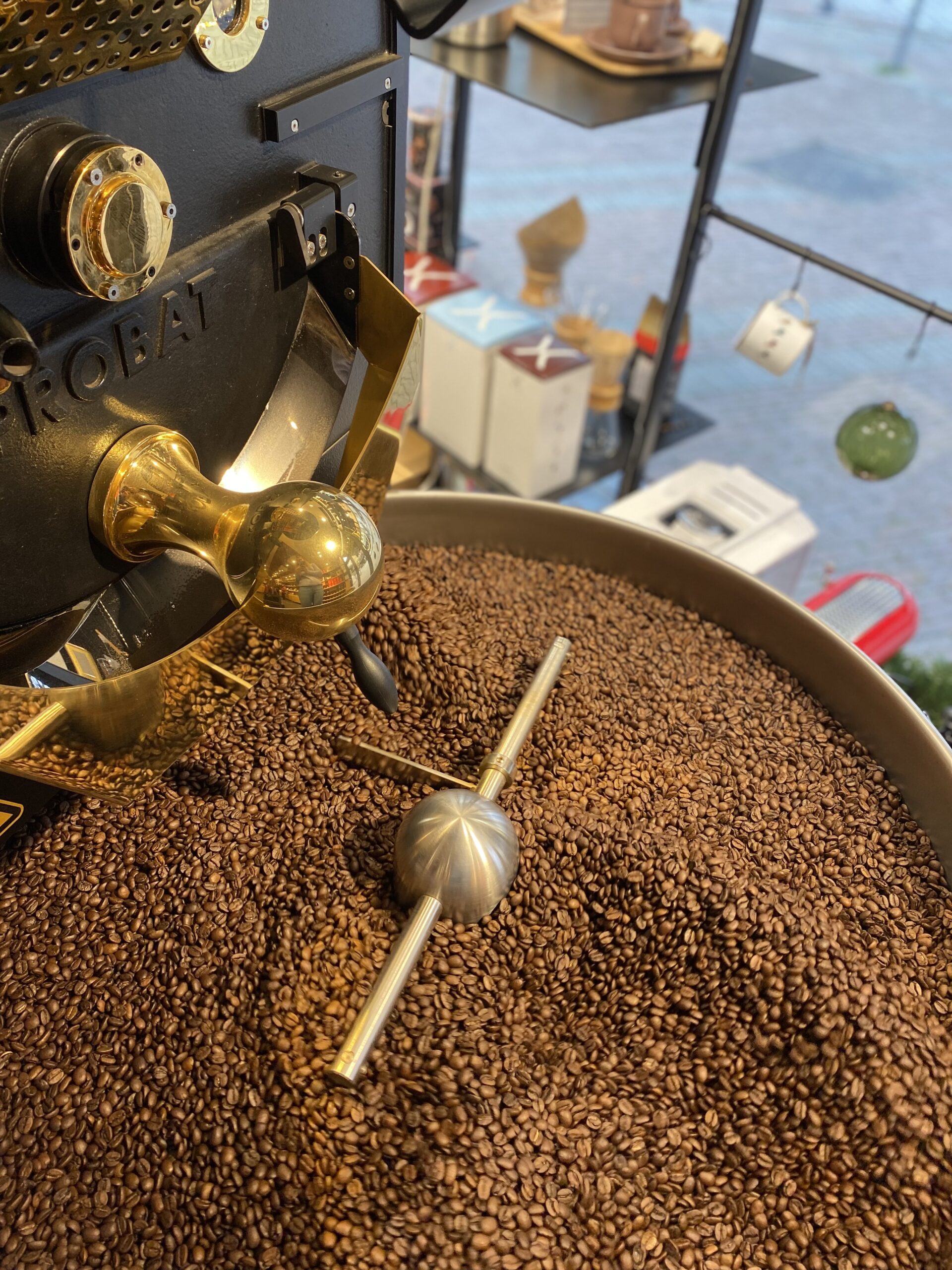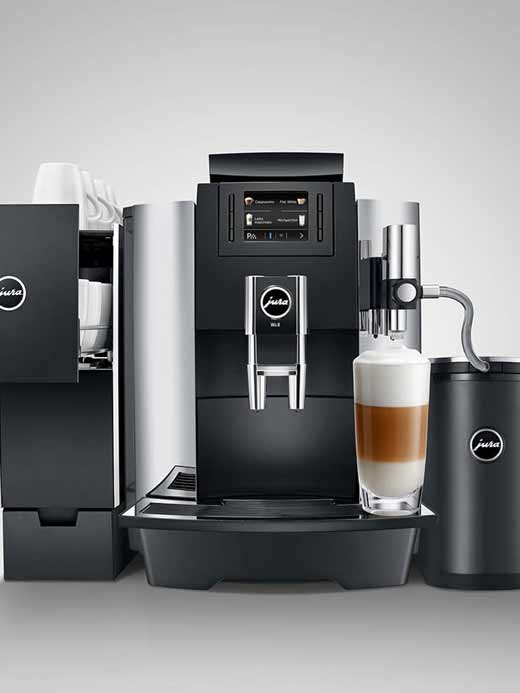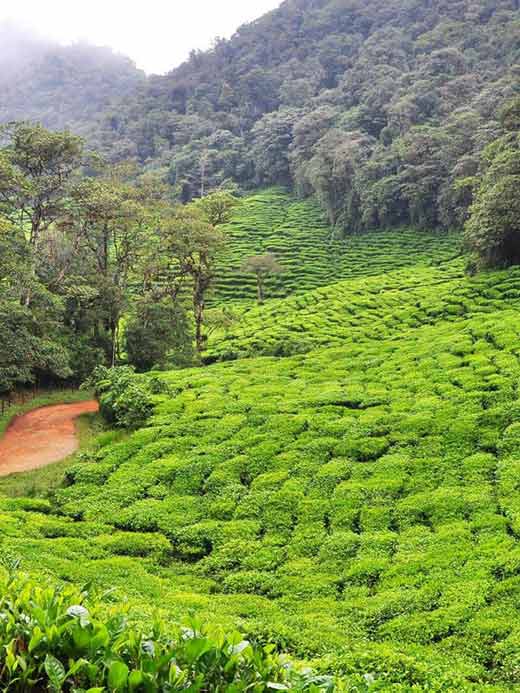Choosing between ground coffee and coffee beans depends on your priorities: convenience, flavor quality or available equipment. Here's a summary to help you decide:
- Ground coffee: Ready to use, fast, no special equipment required. Ideal for daily use or a busy lifestyle. However, it loses its aroma quickly after opening (1 to 5 days) and offers less flexibility to adjust the grind.
- Bean-to-cup coffee: Offers richer aromas and allows you to customize the grind to your preferences. Perfect for coffee lovers seeking a high-end experience. Requires a grinder and more time for preparation.
Quick comparison
| Criteria | Ground coffee | Coffee beans |
|---|---|---|
| Freshness | 1-5 days after opening | 4-6 weeks after opening |
| Practical | Immediate | Grinding time |
| Equipment | None required | Essential mill |
| Aromas | Less intense | Richer and more complex |
| Flexibility | Fixed grind | Adjustable according to method |
My advice: If you prefer speed and simplicity, opt for ground coffee. If you want to maximize quality and personalize your preparation, choose coffee beans. Adapt your choice to your habits and equipment, while taking into account the ecological impact and ethical options available in Belgium.
Coffee beans vs. ground coffee: what's the difference and which to choose?
Ground coffee: characteristics, advantages and disadvantages
Ground coffee is a practical and popular option for many consumers in Belgium. Already ready to use, it fits perfectly into an often busy daily routine, while offering an accessible tasting experience.
Advantages of ground coffee
The main advantage of ground coffee is its ease of use. There's no need for a grinder or any additional handling: simply open the packet and prepare your coffee. This makes it an ideal solution for those looking for a quick drink without sacrificing quality.
From a budget point of view, ground coffee is also interesting. It avoids the need to buy an expensive grinder, while remaining compatible with everyday equipment such as filter coffee makers, Italian coffee makers and domestic espresso machines. Pods and capsules, which generally contain between 6 and 10 grams of ground coffee, bear witness to this practicality.
In terms of environmental impact, ground coffee can be a more responsible alternative to disposable capsules. Used with reusable filters, it generates less waste, a point that is increasingly appealing to coffee lovers concerned about their ecological footprint.
Disadvantages of ground coffee
Despite its advantages, ground coffee also has its limitations. The main problem is the rapid loss of freshness. Once ground, coffee is more exposed to air, light and humidity, which accelerates the degradation of its aromas. For optimum quality, we recommend consuming coffee within 1 to 5 days of opening. In comparison, whole beans retain their freshness much longer, between 4 and 6 weeks.
Another disadvantage concerns storage. If ground coffee is stored incorrectly, it can become a breeding ground for mold and bacteria.
Finally, the fixed granulometry of ground coffee can pose a problem. Unlike beans, which can be ground according to your needs, ground coffee does not allow you to adjust the fineness of the grind to suit your brewing method. This limits customization possibilities and may not be suitable for certain machines or taste preferences.
When to use ground coffee?
Taking into account its advantages and disadvantages, ground coffee shines in certain very specific contexts. It is particularly suited to people with a fast-paced lifestyle, especially in urban or professional environments, where speed and simplicity are essential. For beginners, it also eliminates the complexity of setting the grind.
Programmable coffee makers, very popular in Belgium, work perfectly with ground coffee, allowing you to prepare your drink in advance and save time, especially in the morning.
Finally, for occasional consumers who only drink a few cups a week, ground coffee is an economical solution. It avoids the need to buy a grinder and manage large quantities of fresh beans, while remaining practical and accessible.
Coffee beans: characteristics, advantages and disadvantages
Coffee beans are often the choice of connoisseurs in search of a high-end taste experience. Whole beans help preserve aromas while offering total control over preparation.
Advantages of coffee beans
The first advantage of coffee beans is their freshness. Unlike ground coffee, which rapidly loses its aromas (within a few days), whole beans retain their essential oils and flavours for 2 to 4 weeks. This natural preservation guarantees long-lasting taste quality.
Another advantage is that the beans are ground as they are brewed. This allows the fineness of the grind to be adapted to each brewing method, whether espresso, filter coffee or piston coffee maker. This level of customization improves extraction and reveals richer, more complex flavors.
What's more, coffee beans are often sold in bulk or in large packs, which reduces waste and preserves their freshness for longer. It's both economical and environmentally friendly. As an added bonus, a simple glance at the beans allows you to assess their quality and degree of roast.
Disadvantages of coffee beans
The main obstacle is the initial investment in a quality mill. Powerful electric models can be expensive, while manual mills, although more affordable, require more physical effort.
Another disadvantage is that grinding the beans just before brewing coffee takes time. This can be an obstacle on those mornings when every minute counts.
Finally, mastering the perfect grind requires a bit of learning and technical expertise, which can discourage novices.
When to opt for coffee beans?
Coffee beans are ideal for coffee enthusiasts who want to enjoy the very best quality. Multi-appliance households will also benefit, as they can adjust the grind to suit each brewing method. It's worth noting that some machines won't work properly if you don't opt for coffee beans. For example, it will be impossible to get a good result with an espresso machine if you don't grind your coffee just before extraction.
For large consumers, buying beans in large quantities while preserving their freshness is a wise choice, especially for families or offices where coffee is a daily drink. Sourcing from local Belgian roasters also reinforces this approach.
Finally, those who prefer a more responsible approach will appreciate supporting local artisans while reducing packaging waste (capsules, pads, etc.).
In short, coffee beans offer a personalized, authentic experience, but require a little more time and equipment. A perfect option for those who value quality and flexibility.
Comparison between ground coffee and coffee beans
This table highlights the main differences between ground coffee and coffee beans, to help you better understand the impact of each option on the quality of your beverage.
Comparison table
| Criteria | Ground coffee | Coffee beans |
|---|---|---|
| Freshness | 1-2 weeks after opening | 4-6 weeks in airtight container |
| Unopened storage | 3-5 months at room temperature | Up to 1 year in sealed packaging |
| Convenience | Ready to use | Requires pre-grinding |
| Equipment required | No equipment required | Coffee grinder or automatic coffee machine essential |
| Aromas | Rapid loss of essential oils | Longer-lasting flavours |
| Flexible grinding | Fixed grind | Adjustable according to preparation method |
| Preparation time | Immediate | Extra time to grind grain |
Freshness is undoubtedly the most decisive criterion. Emma Sage, head of coffee science at the SCAA, explains:
"Coffee is what is known in food science as a stable product which, after roasting, does not spoil due to enzymatic or microbial processes."
However, this stability does not guarantee consistent taste quality. Once ground, coffee is more exposed to oxygen, which accelerates the loss of aroma.
Roasting profiles also play a role in flavor retention. So your personal taste preferences can influence your choice.
To preserve quality, it's crucial to store coffee - whether ground or bean - in a cool, dry place and in an airtight container. Chelsea Edwards, dietician and owner of Huntsville Nutrition Collective, reminds us:
"Best-before dates on coffee indicate when it will taste and smell its best, but do not indicate the safety of the ground coffee."
Taking these factors into account, the choice between ground coffee and coffee beans will depend on your priorities: convenience, freshness or personalization. It's up to you to decide which best suits your routine and expectations.
Tips for Belgian coffee drinkers
Storage and preservation methods
In Belgium, wherehigh humidity and temperature variations are common, it's essential to store your coffee properly to preserve its aromas. Heather Calatrello, Senior Roaster at ShedLight Coffee Roasters, recommends :
"The basic rule for storing coffee is to keep it away from air, humidity, heat and light. Exposure to these elements rapidly degrades coffee."
To protect your coffee, use an airtight, opaque container, kept between 10°C and 21°C, away from light and humidity. Avoid placing it near radiators or sunny windows, or in damp places such as a kitchen in the middle of cooking.
If the original packaging has a degassing valve, keep the coffee in it. As roasted beans are porous, they easily absorb moisture and odors from the environment.
Don't freeze your coffee, as the condensation that forms during thawing can alter its taste. Likewise, the refrigerator is not a good option for storage.
Freshly roasted beans retain their optimum quality for around 90 days in a vacuum bag, but only 10 to 14 days once opened. As for ground coffee, it deteriorates even faster, which is why it's so important to grind your beans just before preparing them.
Proper storage is the first step to getting the most out of your coffee, whatever format you choose.
How to choose the right coffee format
With an average consumption of 6.8 kg per capita each year, Belgians are true coffee lovers. To maximize flavor, opt for whole beans, or choose ground coffee if you prefer simplicity.
Your drinking habits play a key role. Beans are perfect for occasional consumption, while ground coffee is ideal for those who drink coffee regularly and quickly.
Beans also offer flexibility for those who like to vary their brewing methods. For example, if your coffee is too bitter, try a coarser grind. If it lacks body, opt for a finer grind.
At Cafés Van Hove, you'll find a wide selection of artisan coffees, from beans to specific grinds, with prices ranging from €6.25 to €180.00. Their subscription service, which includes a 5% discount, makes it easy to stock up on fresh coffee with flexible delivery.
Ethical and environmental considerations
Belgian consumers are paying increasing attention to thesocial and ecological impact of their coffee. This awareness often influences the choice between ground coffee and beans.
The coffee industry faces major environmental challenges: by 2050, 88% of coffee-growing land in Latin America could disappear due to climate change. What's more, 80% of the world's coffee is produced by small farms located mainly in the Global South.
Choosing Sustainable Trade coffees guarantees a minimum price for producers and supports community projects.
To reduce your ecological footprint, choose brands with sustainable packaging, such as recyclable sachets or compostable capsules. Cafés Van Hove is committed to these principles, offering eco-friendly capsules and coffees that comply with sustainable trade standards.
Adopt simple gestures too: brew only the quantity of coffee you need, compost the grounds, avoid disposable cups and prefer reusable filters or methods such as the piston coffee maker.
Finally, supporting agricultural practices such as shade-growing and agroforestry can make a real difference. These traditional methods, which involve growing coffee among trees, help to capture carbon, prevent erosion and preserve biodiversity. By choosing coffees grown using these practices, you're encouraging agriculture that's more respectful of the planet.
Conclusion: Find the coffee that's right for you
Choosing between ground coffee and coffee beans depends on your habits, your equipment and your personal tastes. Each option has its own strengths, designed to meet different needs and lifestyles.
Bean-to-cup coffee is perfect for enthusiasts who want unrivalled freshness and total control over the grind to optimize their extraction method. It's ideal for revealing the full richness of aromas.
Ground coffee, on the other hand, is for those who prefer simplicity and speed. It offers an excellent compromise between intensity and flavor, without the need for special equipment.
These differences are reflected in the range offered by Cafés Van Hove, our Belgian family-run business since 1954. With regular, artisanal roasting, our selection of coffees suits all preferences.
Whether you're a fan of convenience or a lover of freshness, choose the coffee that fits in perfectly with your daily routine and your brewing method.
FAQs
How can I keep my ground coffee fresh longer?
To keep your ground coffee as tasty as possible, store it in an airtight ceramic, glass or stainless steel container. Be sure to store it in a cool, dry, dark place, such as a closed cupboard. Avoid the fridge or freezer: temperature variations and humidity can alter its aroma and quality.
To take full advantage of its freshness, ground coffee should be consumed within two weeks of opening. If you can, buy small quantities to avoid keeping it too long.
Why are coffee beans more environmentally friendly than capsules?
Coffee beans: an ecological alternative
Coffee beans are often seen as a more environmentally-friendly option, not least because they produce significantly less non-recyclable waste. Unlike capsules, which are often made of aluminum or plastic that is difficult to recycle, coffee beans require only minimal packaging.
What's more, the manufacture and recycling of capsules require greater energy consumption, adding to their carbon footprint. Choosing coffee beans means opting for a more sustainable solution, while enjoying authentic, freshly-ground coffee.
What type of coffee should I choose for my home equipment: ground or whole bean?
Ground coffee or coffee beans: which to choose?
The choice between ground coffee and coffee beans depends above all on your equipment and daily habits. If you have a machine with a built-in grinder or coffee mill, coffee beans are the perfect option. It allows the beans to be ground just before preparation, guaranteeing incomparable freshness and intense aromas, ideal for demanding coffee lovers.
On the other hand, if you don't have the equipment to grind beans, or if you prefer simplicity, ground coffee is a practical solution. Ready to use, it saves you time, even if its aromas tend to fade more quickly. In short, choose the one that best suits your lifestyle and taste preferences.


